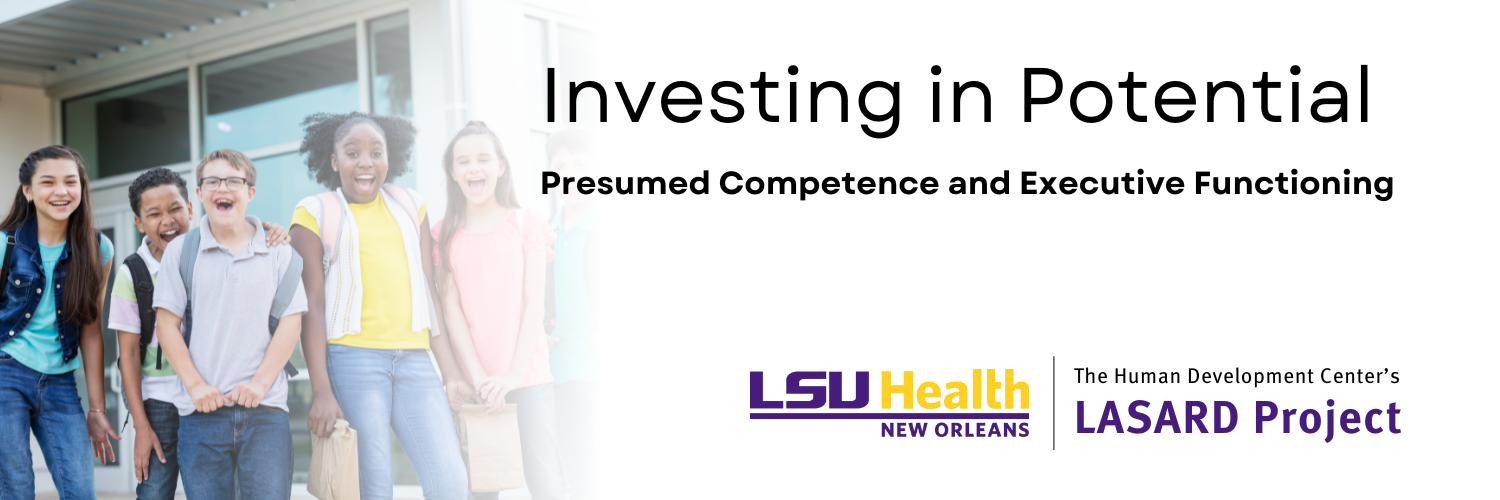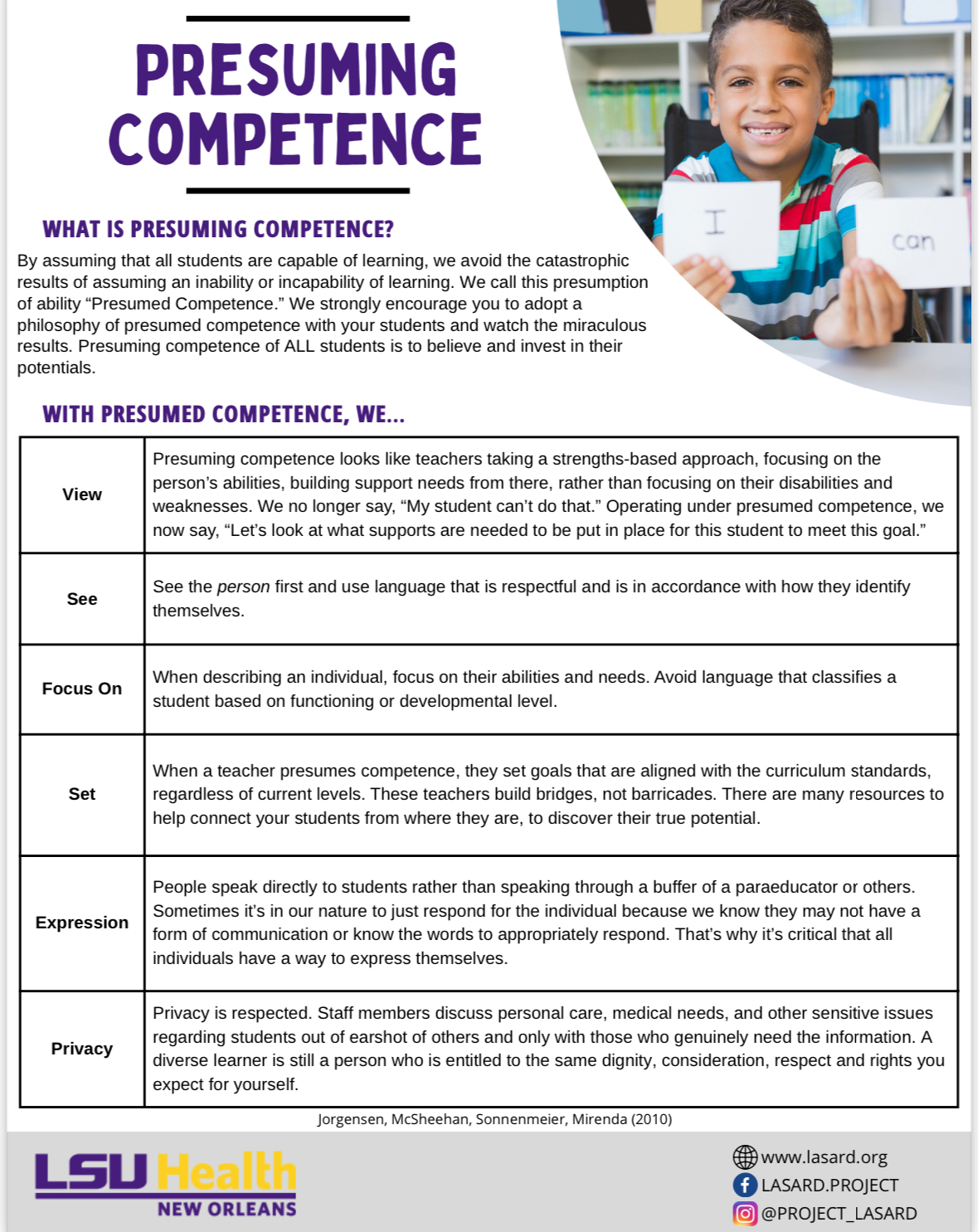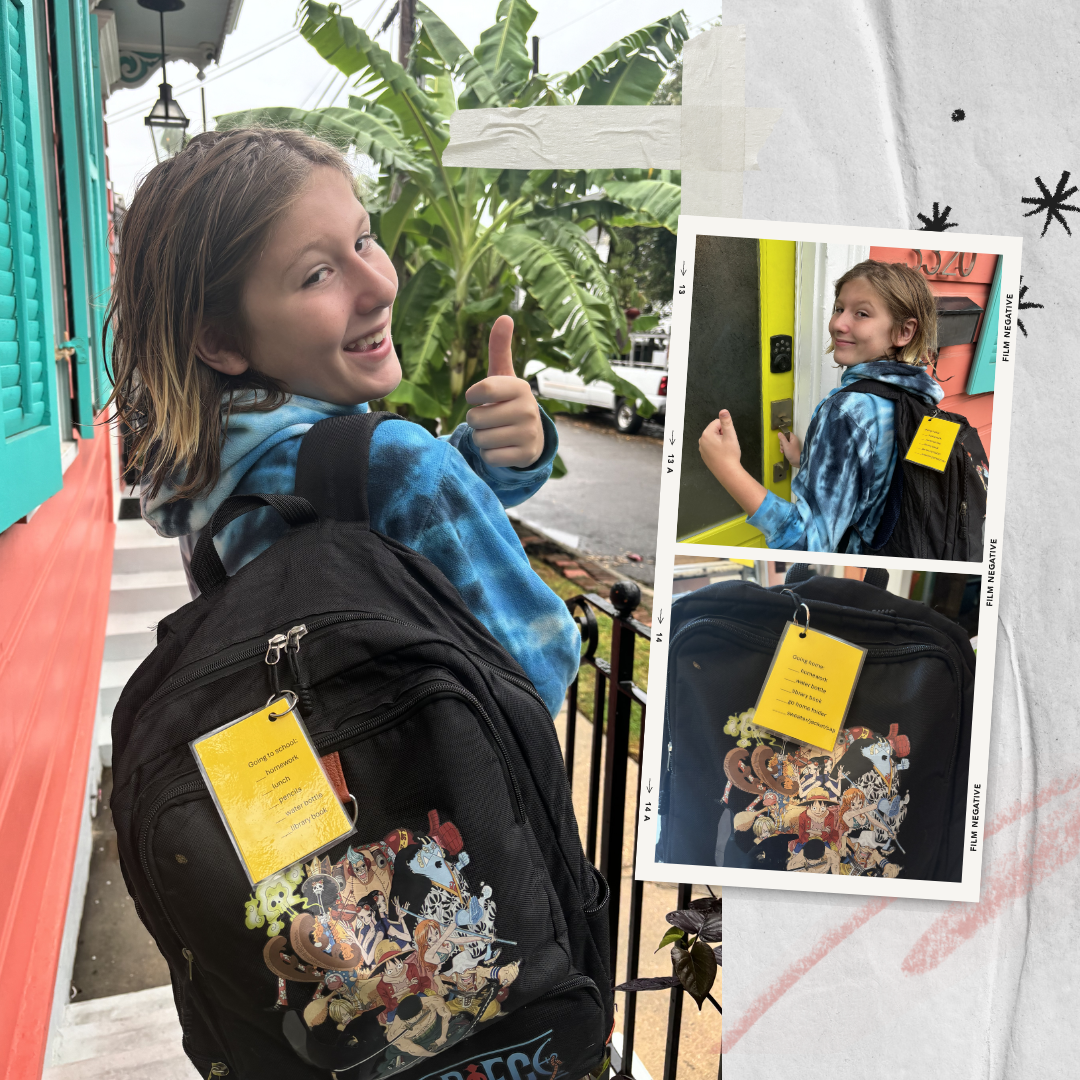
Investing in Potential
October is Down Syndrome Acceptance Month, ADHD Awareness Month, and National Disability Employment Awareness Month. What is the biggest tool we can use to address and celebrate all of these topics? Presumed Competence! Presuming competence means that you believe that ALL of the students you teach are capable of learning and deepening their understanding. The LASARD team strongly encourages you to adopt a philosophy of presuming competence and watch for the amazing results in your students!
Another skill we constantly work to empower is Executive Functioning. Executive functioning skills enable us to plan, focus attention, remember instructions, and juggle multiple tasks successfully.
Presumed Competence
By assuming that all learners are capable of learning, we avoid the catastrophic results of assuming an inability or incapability of learning. We call this presumption of ability “Presumed Competence.” Presuming competence of ALL learners is to believe and invest in their potentials.
Presumed Competence Strategy Guide
Presuming competence is crucial for all students. Get the step-by-step play from our strategy guide!
Download LASARD's Presumed Competence Strategy Guide

Reminder Tag
Does your learner forget to bring things home like homework, lunchbox, or library books? Do they forget to bring their “take home” folder back to school? A reminder tag with these items listed on their school bag can be a game changer! This school bag tag has two sides – “Going to School” and “Going Home” to assist your learner in remembering what they need to pack up before heading out.

Executive Functioning
You nurture your students's ability to learn by providing them with strategies that support their executive functioning skills.
Red Light/Green Light Study Strategy
This study strategy supports a very important executive function – working memory! Working memory helps us keep information in our mind and put it to use. Your learner might struggle with working memory if they: have difficulty following multi-step directions, need to re-read texts to understand, have to write things down so they don’t forget, have a hard time doing mental math, or struggle with doing more than one task at a time. This strategy gives the student a process for studying material which can seem overwhelming. It allows students to begin with what they know so that they can target what they need to spend time on.
“How Big is Your Problem?” Visual Support
Learners who struggle with executive functioning might also struggle with flexible thinking – which is adapting to changing conditions by revising or pivoting strategies and plans. Learners who might struggle with flexible thinking may panic when routines change, have difficulty when others don’t follow rules, struggle to modify their thinking when something changes, get stuck in one way of solving a problem, insist on having one way of doing things, and may seem bossy or controlling with peers. When things change or the learner meets an obstacle, we can teach them to reflect on how big of a problem that obstacle really is, and if their reaction to the problem also matched the size of the problem. Check out the “How Big is Your Problem?” visual support.
About LASARD
The LASARD team is made up of experienced educators that mentor and support hundreds of educators across Louisiana to meet the unique needs of their diverse learners by implementing specialized supports. LASARD’s trainings are paired with with in-person, job-embedded coaching to ensure the use of evidence-based practices.
LASARD is a project of the Human Development Center (HDC) at LSU Health New Orleans. HDC is Louisiana’s University Center of Excellence in Developmental Disabilities. HDC and its programs build the capacity of professionals, service providers, and families to ensure that people with disabilities are able to participate fully in all aspects of community life.
